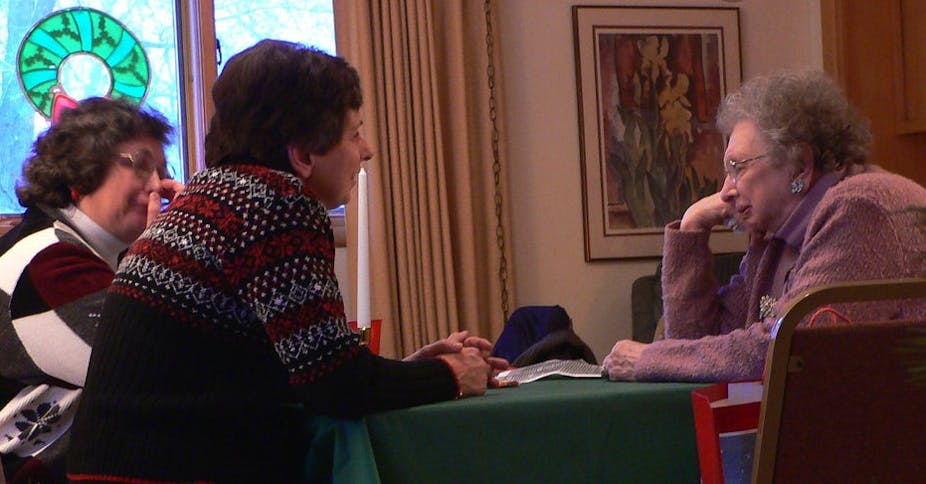TALKING ABOUT DEATH AND DYING – Why don’t we talk about death and dying? A simple albeit difficult conversation could mean the difference between a peaceful and undignified death for individuals, between trauma and peace for families. Hopefully, Brian’s story will inspire people to talk about life’s greatest inevitability.
An undignified end
Brian, aged 73 years, had recently been discharged from hospital following a minor leg surgery due to poor circulation. Prior to this surgery, Brian regarded himself as “fit and healthy”, although he was diagnosed with hypertension four years earlier, and took medication for it.
Visiting his home one day, Brian’s sister found him unconscious and called an ambulance. Investigation revealed Brian had suffered a significant stroke to his frontal lobe so he was admitted to the Intensive Care Unit (ICU) and kept alive on life support. Further investigation showed recovery with intact neurological function was impossible for him.
His only relative – his sister Joan – was contacted and informed of the severity of Brian’s condition, and of the unlikely chance he’d regain consciousness. Brian hadn’t prepared an advance care plan, or discussed his preferences in the event of becoming critically ill, with his sister.
When Joan met the ICU consultant, she was informed there was little hope of any sort of meaningful recovery, and that if Brian was taken off life support, he would most surely die.
Joan was unsure about what Brian would want and pleaded for him to be given more time to improve, and for her to consider what his wishes might have been before any decisions were made. Brian remained ventilator-dependent in the ICU for nine days, his condition further complicated by the development of pneumonia and septicaemia.
Despite the continued aggressive treatment he received, he died in the ICU, never having regained consciousness. The prolonged aggressive treatment, associated suffering and loss of autonomy and dignity that Brian endured, in addition to the distress that his sister suffered, could easily have been avoided if Brian had completed an advance care plan. Or if he’d had discussions with his sister, Joan, or his GP, about how he would like to be cared for in the event of serious or life-threatening illness.

Not untypical
Just like Brian, most people in Australian society aren’t comfortable discussing their death even though it’s becoming a more important topic as the population ages.
People over 65 years of age account for 13% of Australia’s total population and that figure is projected to rise to 25% by 2056. Chronic illness is the leading cause of death in Australia, with 2006 statistics showing that 140,000 people die every year from such diseases as diabetes, dementia and heart disease, and this number is also expected to increase.
So it’s vital for individuals, while they’re still well enough, to have conversations with their family about what they’d want if they became very ill or were dying.
It’s important because when an individual is no longer able to make decisions, often doctors turn to the next-of-kin or other family members for guidance about what to do, just as they did with Brian. And this is not just for guidance about a person’s official resuscitation status, such as “Not for Resuscitation”.
There are many other situations where a seriously ill person’s family could be asked to make tough decisions:
Would you want to be kept alive by machines in ICU?
Would you want to have “everything” done to save you if your quality of life would never be the same?
Would you prefer to be kept comfortable and free of pain or distress, and allowed to die?
While these may seem like unlikely and hypothetical scenarios to a healthy person, discussing these things with loved ones while they’re well may save a family a lot of grief later.
Ripple effect
Studies show the anxiety and depression caused in family members by the burden of having to make life-or-death decisions during the time of a person’s serious illness is huge. Some family members even develop post-traumatic stress symptoms as a result of such experiences.
Some family members feel guilty about their decision for a long time. Others find they can’t contribute to the decision making, and they feel guilty about this inability.
Situations when no-one knows what the individual would’ve wanted can also lead to conflict in families. And the longer it takes for the family to come to an agreement, the longer the person continues to suffer. It’s not what anyone wants to go through.

Given that our population is ageing at a significant rate, it’s really important that families have these discussions early, and include the family doctor so if something terrible does happen, the right decision, based on an individual’s own preferences, is made.
If a doctor starts the conversation, it’s best not to resist. The more doctor knows about how an individual wants to be cared for, the better.
So the advice is simple: start the conversation with your loved ones and your doctor before you get sick. Be sure they know what you would want in the event that something happens in the future.
Get to know what your loved ones would want too. While the conversation may be uncomfortable at first, it can save a lot of heartache later on.
This is the fourth part of Talking about death and dying. To read the other instalments, click on the links below:
Part One: Deadly censorship games: keeping a tight lid on the euthanasia debate
Part Two: End of the care conveyor belt: death in intensive care units
Part Three: Caring or curing: the importance of being honest
Part Five: Body or soul: why we don’t talk about death and dying
Part Six: Planning your endgame: Advance Care Directives
Part Seven: A challenge to our leaders – why don’t we legalise euthanasia?
Part Eight: A personal account of life with terminal cancer

